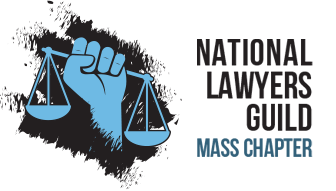On Thursday, January 17th, at 6:00pm, the NLG-Mass Chapter presented the fifth Know Your Rights teach-in of our six-month long series, “Law For The People.” Northeastern University School of Law co-sponsored and hosted this teach-in, entitled “Employment/Labor Law For The People.”
NLG-Mass member Attorney Mark Stern spoke about the many different types of labor law, from union law to discrimination cases to workers’ 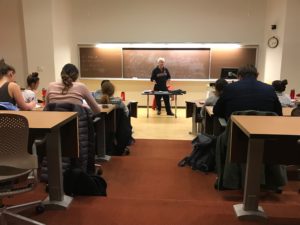 compensation. The classroom of law students and law workers left the teach-in with valuable insight into what it takes to protect workers’ rights at the legal level.
compensation. The classroom of law students and law workers left the teach-in with valuable insight into what it takes to protect workers’ rights at the legal level.
Union Work
According to Stern, attorneys can engage with labor union work through one of two facets: on the side of the labor union itself, or on the side of the union members through union democracy work. If an attorney represents a union itself, they ultimately negotiate in court what that union should be. “Being a labor union lawyer is, effectively, an administrative job,” Stern said.
On the other side of labor union law are the union democracy lawyers – one of whom is, in fact, Stern himself. As a union democracy lawyer, Stern sometimes sues unions on behalf of their members for equity and justice within the union infrastructure. In doing this work, Stern does not degrade unions; rather, he practices union democracy law because he gets to work with the people within unions who are materially doing the organizing work. “If you’re in a union, you’re a million times better off than if you weren’t…this [union democracy] movement is just different from what the labor movement traditionally is. I take these [union democracy] cases to support the movement.” Stern uses the United Electrical, Radio, & Machine Workers of America union as a model for union democracy: “[The UE] is what a union was, and what a union should be…the UE is what it looks like when members are involved in union decision-making.”
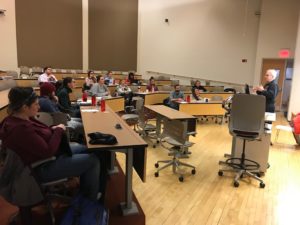 Wage & Hour Work
Wage & Hour Work
Attorneys doing work around wage and hour typically handle minimum wage claims and overtime claims. Stern mentioned that it is “very fulfilling to serve the people you serve in this work.” In regards to the income of a wage and hour attorney, Stern said that “you just have to pick and choose your cases in order to sustain your practice.”
Retaliation/Discrimination Work
“If you want to win a case in court, you want [the case] to be simple. If you want to feed a case into court, you want [the case] to be complicated…discrimination cases are always complicated and incredibly difficult to win. If you’re good, you can make a decent living, but most cases you’ll see, you won’t be able to do anything about. The ones you can do something about, though, are very rewarding,” Stern said in regards to retaliation and discrimination work.
Workers Compensation
Stern described workers compensation as “basically insurance for workers.” According to Stern, workers compensation cases are primarily handled through private practices. Because of the frequency of workers compensation cases, attorneys specialized in workers compensation receive steady, regular business and earn a decent living. “It’s entirely administrative law…[workers compensation attorneys’] relationship to clients isn’t necessarily that close, but [they] do get a good volume of cases and [they] get to do a lot of evidential trials and arguing at hearings. There’s also a high success rate [with workers compensation cases.]”
During the Q&A portion of the teach-in, Stern answered a question regarding how to approach an exploitative employer on behalf of your client: “You 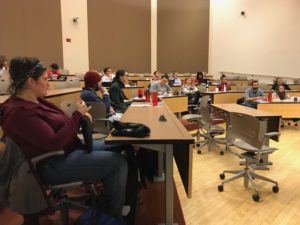 need to negotiate a solution. Always present [the employer] with options…if you approach a situation by asking questions, you will walk away hearing something that you didn’t know was there before…if you ask ‘why why why why why,’ you’ll always gain some ground.” This advice is applicable to cases across the board of labor/employment law.
need to negotiate a solution. Always present [the employer] with options…if you approach a situation by asking questions, you will walk away hearing something that you didn’t know was there before…if you ask ‘why why why why why,’ you’ll always gain some ground.” This advice is applicable to cases across the board of labor/employment law.
Stern concluded the teach-in by emphasizing the pertinence of attorneys specialized in labor/employment law: “With unions getting less and less in the picture, there’s even more of a need for labor attorneys.” Labor attorneys truly do stand at the forefront of the local progressive movement as they defend the interests of workers on-the-ground and support them in their fight for justice. “My job is doing what my client wants, not what I think they need.”
– Kayla Degala-Paraíso –


